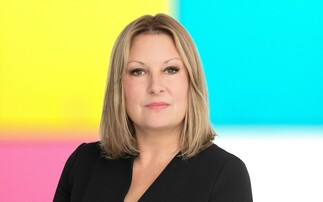Sam Liddle looks at the world of decumulation - where he says you have to expect the unexpected...
You don’t need us to tell you that markets have been defined by uncertainty over the past year.
There has been the coronavirus pandemic, which alone cast entire nations into economic turmoil as lockdowns destroyed visibility for swathes of critical sectors.
But there has also been an extraordinary amount of political uncertainty. From Brexit negotiations, US trade disputes and riots, to protests in Hong Kong – tensions have been running high across the globe.
We are by no means out of the woods yet, either. Not only do many of these political ‘hot potatoes’ remain, but new ones are arising.
Take the newly-elected US Biden administration. Although welcomed in by many, we can only speculate on how his radically different leadership style in comparison to Trump, will play out, especially with the bonus addition of a Democratic Senate giving the Democrats added power.
Then there is the ongoing second-wave of Covid-19. New and aggressive strains have set many nations back several steps, with the UK being a prime example. The uncertainty around where this pandemic will go has only increased as the virus continues to surge, even alongside the roll-out of vaccines.
The net result is an extraordinary level of market volatility.
Amid these conditions, it has never been more essential for retirees to be both consistent and cautious when it comes to investing their hard-earned pension pots.
Risk versus rewards
This may all sound pretty bleak. After all, can’t volatile markets present excellent investment opportunities? Yes, and in some ways the last year has presented some of the best short-term profit opportunities since the Global Financial Crisis.
However, as much as high-risk assets can outperform in these situations, they can also become volatile in turbulent markets and it is not unusual to see large gains neutralised by subsequent large losses.
Timing markets is a hard game and history has shown us that very few get it right. Just because a diving asset may look severely undervalued and over-punished, that doesn’t guarantee that it will rebound. Especially in “unprecedented” markets like these.
Retrospect doesn’t reward investors and we’d all have liked to back Big Tech at the beginning of lockdown…or a pharma stock just before its Covid-19 vaccine was approved.
Even the most experienced investors will tell you that stocks regularly fail to perform as expected.
Preservation focus
Investors in the accumulation phase of their lives can often afford to take a shot at higher returns by allocating to risk assets in turbulent times.
If they enter the right asset at the right time, they can ride the wave and capital grows. If they get it wrong, then they are likely to have the supplementary income to maintain their lifestyle and the time to wait for a recovery.
The story is, of course, very different for older investors in the decumulation phase of their lives. Making bold investments in high risk assets in uncertain markets gives them less time to recoup profits if the market goes against them. More often than not, they are much more reliant on drawing down from their savings to maintain their lifestyle.
And that’s not even to mention the risk of “pound-cost ravaging” during decumulation, where retirees are forced to sell larger and larger portions of their pension pot to maintain their preferred level of consistent income when the underlying value of that pot falls.
Bring these factors together and the key message is one of caution.
Given ongoing global uncertainty, the investment focus for those who are heavily reliant on decumulation for income should be on limiting losses rather than chasing a wave of growth.
Even in more stable times, we would argue that caution should be exercised around putting too much risk on the table when saving for retirement. If Covid-19 has taught us anything, it is to expect the unexpected.
Low-risk investment products like multi-asset funds can provide the best of both worlds here. Those able to turn to increased cash and cash-like allocations alongside low-risk assets cannot only limit volatility, and hence the perils of pound-cost ravaging, but they can help provide returns that replenish a saver’s monthly drawdowns.
Sure, they miss out on some of the upside that some funds offer when we return to bull market territory but equally, they can limit heavy losses as and when markets go against investors. When times are tough, these products can offer retirees the best shot at pension pot protection in the market.
Sam Liddle is director at Church House Investment Management













